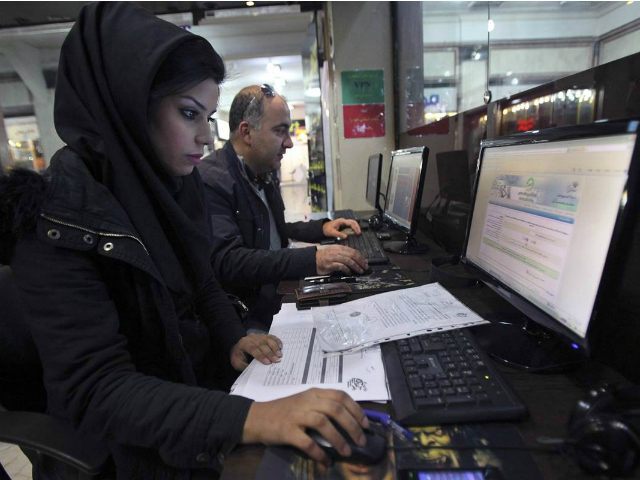Iran’s Minister of Communications and Information Technology, Mahmoud Vaezi, announced on Sunday that Phase One of the new “national Internet” is complete.
The BBC notes this project in Iran has been underway since 2010 and is currently running a few years behind schedule. The Atlantic puts the inception date of the project even earlier, in 2006, and says it was originally supposed to be completed by 2008.
Instead, Phase Two of the project, adding domestic video streaming to the network, is slated for completion in February 2017, followed by the addition of more services and resources for international trade in March 2017, according to the BBC’s report.
State-run Iranian media touts the state-run Internet as “high quality, high speed” access, provided at low cost to the people, with improved protection against cyber-crime.
TheNextWeb notes that Iran’s average Internet download speed is currently only about 10 percent of the global average, slower than Belize, Lebanon, or Uzbekistan. The new national network is supposed to be over 60 times faster than that, thanks to a massive infrastructure of fiber-optic cables and local data centers.
However, the Iranian government has also said it wants to “create an isolated domestic intranet that can be used to promote Islamic content and raise digital awareness among the public,” as the BBC puts it.
In other words, instead of filtering out dissident views and thoughtcrimes by imperfectly blocking news and social media it doesn’t like, the Iranian government will create an isolated network it can police more efficiently. The BBC also cites human-rights activists who are justly suspicious that users of the Iranian national network won’t enjoy much in the way of digital privacy.
The Twentieth Century saw the rise of powerful communications technologies that were supposed to make life difficult for authoritarians, from radio and television, through fax machines, cell phones, and the Internet. Instead, authoritarians have proven distressingly nimble at co-opting these technologies to head off popular uprisings.
Iran’s plan for a national Internet would preserve the illusion of freedom and the vibrant exchange of ideas, but the reality would be an instrument of theocratic control. It’s the worst of all worlds, because young and well-educated Iranians will believe they have the exhilarating freedom of the Internet at their disposal, but they really won’t. They’ll dream of being sailors on a vast global sea of knowledge and creativity, while they’re actually trapped in a stagnant little pond.

COMMENTS
Please let us know if you're having issues with commenting.